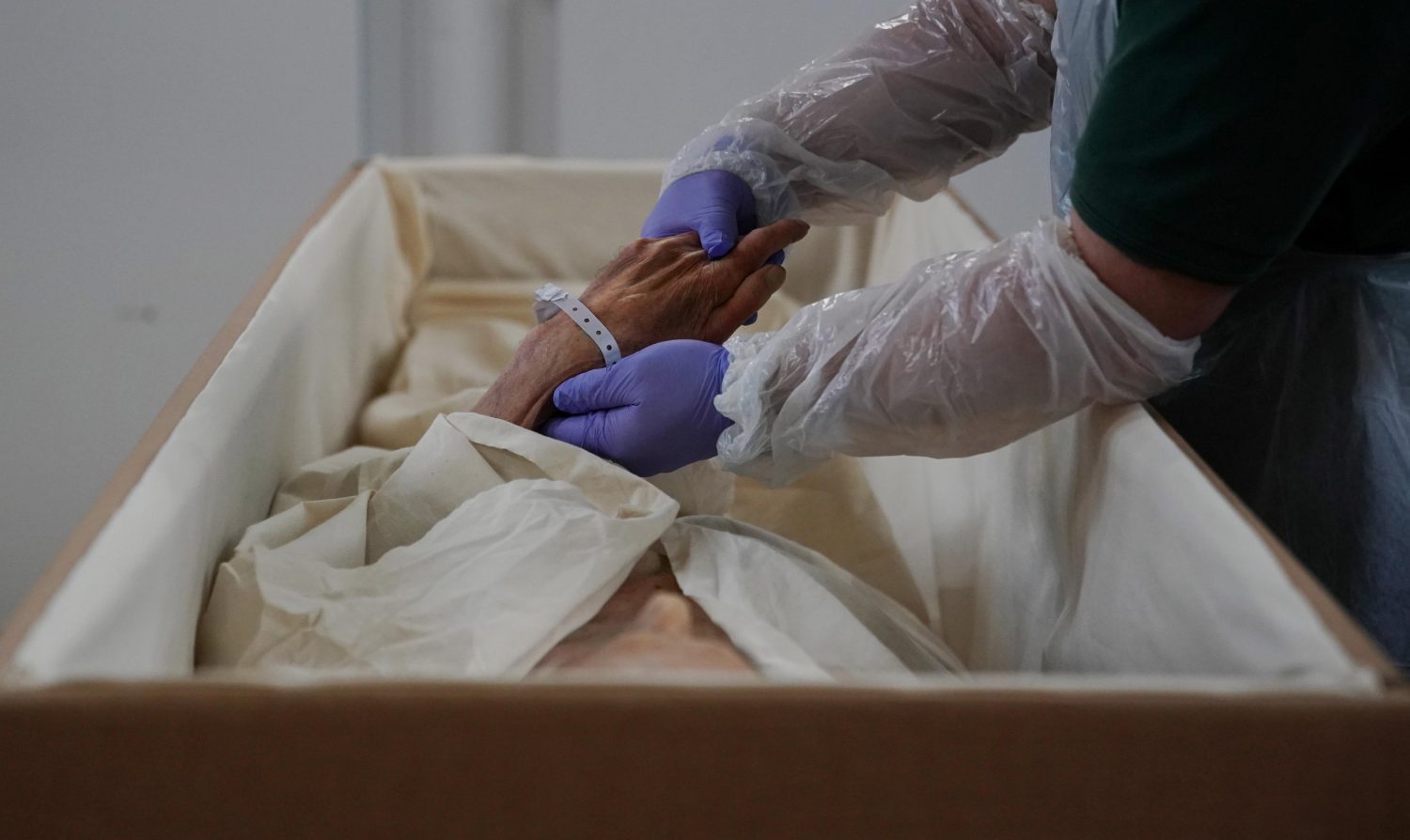Three minute read
Grieving people often get pushed to embalm ‘for their own good’ by funeral directors. This is especially true when someone who has died has a lot of physical changes. Here’s why we believe that death shouldn’t be censored, even in the hardest circumstances.
At Poppy’s, we take a natural approach to death care, which means we don’t embalm people who have died — although we will absolutely help families who want to work with an embalmer. In the funeral sector, this respect for personal choice can be surprisingly controversial.
We often get asked about situations where someone has been dead for a long time or maybe been in a serious accident. There’s the feeling that a natural approach to death care only works when someone hasn’t physically changed.
In cases like this, the argument goes, giving families any options will only cause trauma. Instead, a funeral director should step in and make a decision on their behalf. In practice, this almost always means embalming or else refusing to let the family visit the body.
But informed consent is paramount in nearly every area of life — why should it matter any less in the funeral sector?
Let’s learn to have those difficult conversations
The funeral industry is often all too anxious to shut down conversations about death. From website copy to client conversations, everything is awash in euphemisms. There’s no better example than embalming which often gets tidied away into ‘hygienic treatment.’
This is usually done in the name of protecting friends and family from the realities of death. While it can be done with good intentions, it’s worth considering whether this approach is also about funeral professionals protecting themselves?
At Poppy’s, we’re always led by how much people want to learn about someone’s appearance. Of course not everyone will want to know the details, but many do.
When families want to have this conversation, we’ll always use straightforward language so they know exactly what to expect.
It can be genuinely difficult to talk to friends and family about decomposition or injuries. As funeral directors, we have to describe challenging things like odour, purging, and mould.
In some cases, someone may no longer even be recognisable and that can be very painful for everyone involved.
All of this takes place in a society where we’re often reluctant to mention death at all — and in the absence of well-established conventions, it’s easy to retreat back into silence. But it’s our job to find a compassionate way to deal with the hardest topics, not gate-keep what other people’s grief should look like.
Give people the right to choose for themselves
Ideally, good death care should be about supporting a family’s choices, whatever that involves. We’ve seen people take huge comfort in saying goodbye to someone who no longer looks the way they remember.
There can be so much tenderness in a mother caring for her child whose skin has changed, or a daughter opening a body bag after a post-mortem.
There can even be relief in finally seeing someone’s injuries after a violent death. Sometimes reality gives people something to hold onto — and that can be easier than what the imagination invents.
We also can’t make death any easier by hiding the reality of what it can mean. Embalmers, however skilled, are not miracle workers.
Once someone has physically changed past a certain point, it’s impossible to disguise. The choice at that point is whether we’re really comfortable forbidding people from seeing their own friend or relative?
Our answer to that is an emphatic ‘no.’ It’s important to remember that death is not obscene. Death may be tragic, painful and heart-breakingly difficult but it doesn’t need to be censored.
Grieving families have already lost so much, and taking even more control away is neither right nor kind.
People who are dealing with physical changes to someone they love deserve the same freedoms as everyone else — including whether to visit or to embalm. In the end, what’s important is not their final decision, it’s that we have the respect to give them a choice.
Looking for more ideas about improving death care? Don't miss why you don't need to embalm and let's open up our mortuaries to the public.
To stay in touch with all the latest news and updates from Poppy's by email, sign up here or contact us if you need help planning a funeral.
